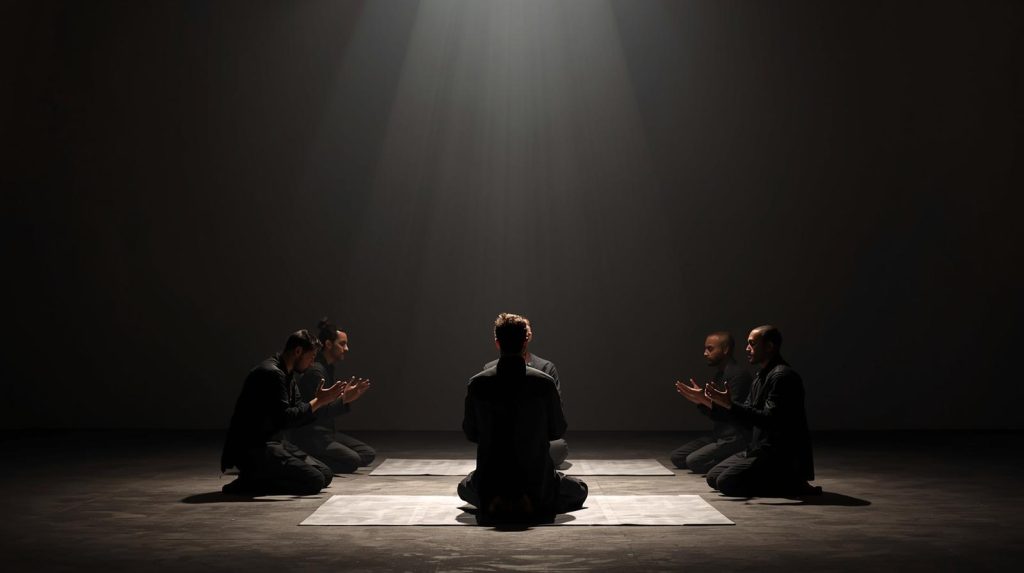
What if I told you that the movies you watch are not just entertainment, but a subtle form of religion? A “counterfeit gospel” with its own set of doctrines, rituals, and promises? This is not a conspiracy theory, but a look at how early Hollywood, influenced by Theosophy, began to craft a spiritual worldview that would captivate billions and shape the soul of the 20th century. This new faith did not need to attack Christianity directly; it simply offered a more palatable, less demanding alternative.
Here are the four key doctrines of this new “Gospel of Self”
1. The Doctrine of Original Trauma Instead of Original Sin

The Bible teaches that humanity is born with a fallen nature, a condition known as “Original Sin,” which requires a savior. Hollywood replaced this with the idea of “Original Trauma.” In countless films, a character’s brokenness or “evil” isn’t due to an inherent sin nature, but to a painful event in their past—a tragic loss, a betrayal, or a difficult childhood. This shifts the human problem from a spiritual and moral one to a psychological one, where the need for a savior is replaced by the need for a therapist or a cathartic experience.
2. The Doctrine of Reinvention Instead of Regeneration

The biblical promise of “being born again” and becoming a new creation through the power of the Holy Spirit was replaced by the distinctly American myth of reinvention. Hollywood became a city of fresh beginnings, where one could escape their past by changing their name, their story, or their face. This teaches us that salvation is an act of self-creation, and we don’t need to be supernaturally transformed by God; we can simply become the “god” of our own lives.
3. The Doctrine of “The Big Break” Instead of Grace

In Christianity, salvation is a gift of unmerited grace from God. In the gospel of Hollywood, this was replaced by the doctrine of “The Big Break.” Hope is placed not in divine favor, but in the secular “grace” of being discovered by a powerful producer or agent. These figures become the priesthood of the system, bestowing the grace of fame and fortune. This creates a system of works and fervent hope, where aspiring stars pray not for God’s favor, but for a lucky encounter that will grant them salvation from obscurity.
4. The Doctrine of Subjective Truth Instead of Revealed Truth

The Word of God presents truth as objective, external, and revealed, something humanity must conform to. Hollywood championed the opposite: the idea that truth is subjective, internal, and self-generated. The mantras of this doctrine—”Follow your heart,” “Believe in yourself,” “Trust your feelings”—became the new commandments, elevating the human heart to the status of ultimate moral arbiter, a direct contradiction of scripture.
The movie palace itself became the new church. These opulent, cathedral-like theaters were temples of escapism, where movie-going became a liturgy. The dimming of the lights created a sacred hush, and the audience sat in communal reverence, their collective consciousness focused on the “altar” of the screen. Here, they would receive the secular gospel of the day—a re-packaging of the American Dream into a doctrine of self-salvation, replacing the cross with the klieg light, and the promise of eternal life with the promise of celluloid immortality.
This was not a hostile takeover of culture, but a seductive replacement. It was a kingdom of illusion whose foundational principles stand in direct opposition to the Kingdom of God. The Apostle Paul’s warning to the Colossians rings with prophetic clarity for this age of enchantment: “See to it that no one takes you captive by philosophy and empty deceit, according to human tradition, according to the elemental spirits of the world, and not according to Christ” (Colossians 2:8).
